Right off the bat, if the title doesn’t fully convey it, we should stress that this is a subjective list of top-notch games which have meant something special to us down the years, compiled in celebration of TechRadar's PC Gaming Week 2019.
Every selection we’ve made has a couple of key things in common. They all offered up new ideas or features – ‘wow’ moments, if you will – that were either ground-breaking, or at least refinements of revolutionary concepts that had popped up in some form previously, but the fresh new take really made them pop and sparkle.
But most importantly, these are the games and experiences which made a huge (and lasting) impact on us over the last three decades of PC gaming, and kept us glued to our monitor for countless bleary-eyed hours.
In short, this isn’t a purely ‘best games’ thing – which has obviously been done to death anyway – but it’s a personal journey through the games which pulled off something searingly memorable for us. Starting with the title that made us buy a gaming PC in the first place: cue stirring music, and scrolling intro text…
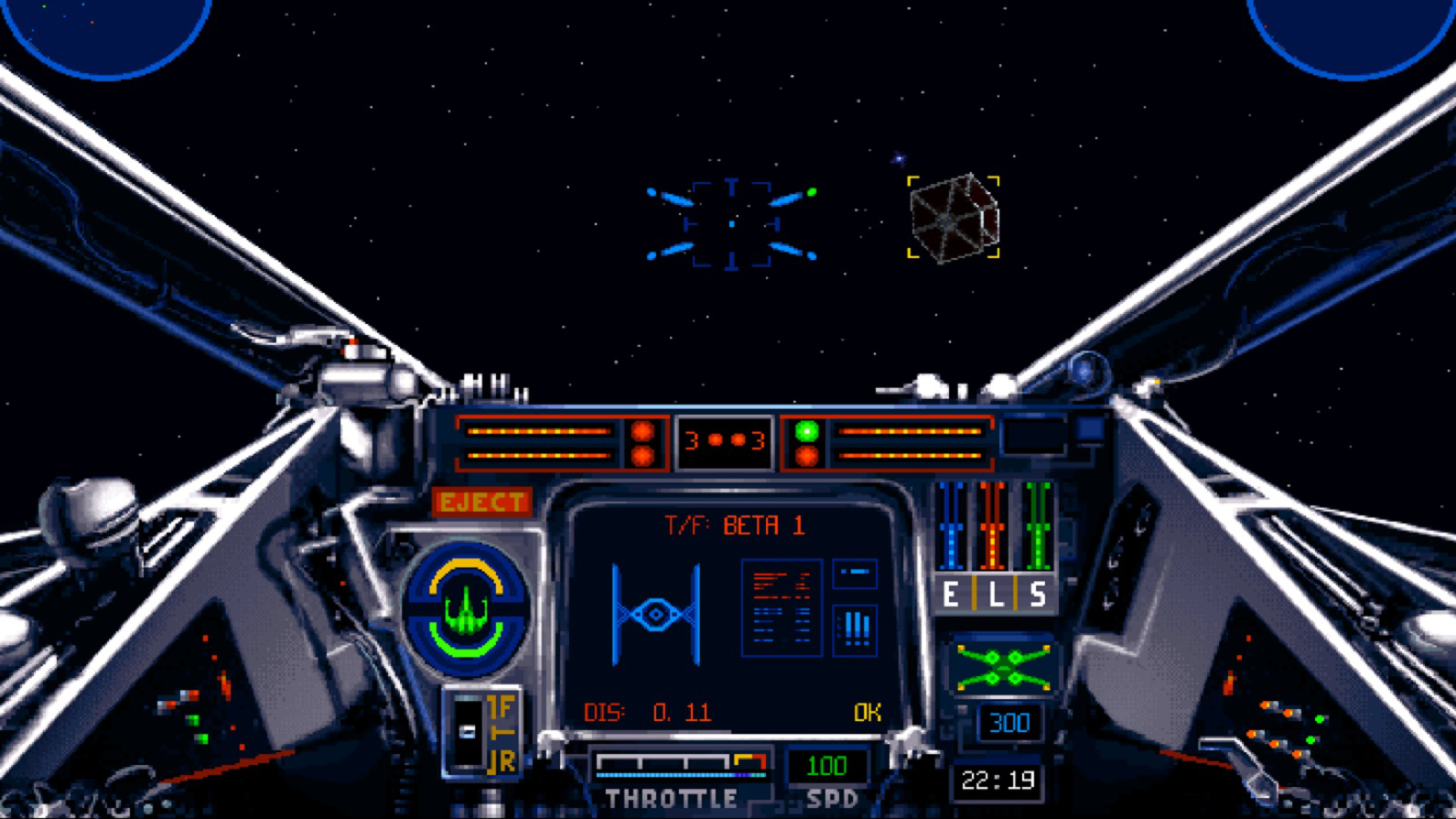
Image credit: LucasArts / Steam
Star Wars: X-Wing (1993)
This was where it all started: the game that made us want to throw in the towel with the Commodore Amiga, and defect to a PC. Essentially, we purchased a 486DX-33 computer – with a mighty 33MHz processor – at the cost of over a grand, just so we could play X-Wing. And it did not disappoint.
This was the first Star Wars game on the PC (or anywhere for that matter, save for the sit-in arcade cabinet) which managed to capture some of the true atmosphere of the movies, and offered top-notch (at the time) 3D polygonal graphics. Not only that, it was nicely presented with cut-scenes and briefings, and boasted a variety of challenging missions linked together into campaigns.
X-Wing also majored in fast and furious arcade-style space dogfighting with a generally well-balanced difficulty level (although some missions could be very tricky and frustrating, it always felt rewarding to eventually beat them).
Oh, and the soundtrack was immense, too: based on iMuse (used previously in LucasArts adventure games), it changed dynamically according to what was happening on-screen.
Perhaps most importantly, all the elements of attention to detail in this game – from the visuals, sound, presentation, through to the core space combat – added up to make us feel like we really were an X-Wing pilot. And that was a pretty mind-blowing experience in the early 90s. A thousand pounds well spent, then.
Interestingly, there’s a mod project to bring this classic up-to-date with tasty new graphics. Color us excited, although we’ve long since lost our X-Wing DOS floppies, sadly.
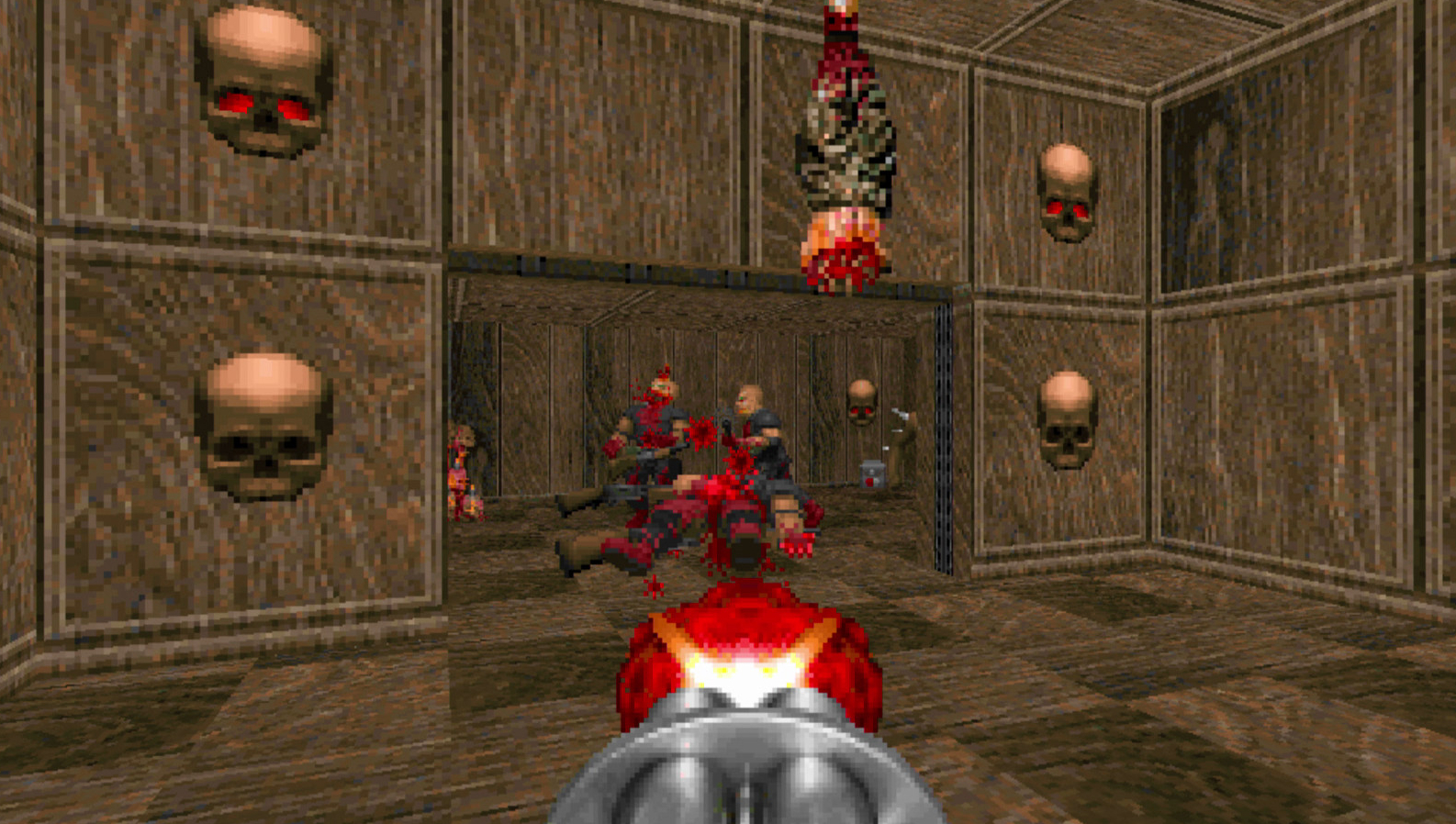
Image credit: id Software / Steam
Doom (1993)
Doom was where it all began for shooters on the PC. Okay, so it did have a predecessor in the form of Wolfenstein 3D, but Doom was far more sophisticated, and represented the true birth of FPS as we know it today.
Doom benefited from much better graphics, for starters, and while technically these were both 2.5D shooters – meaning they looked 3D, but were still just cleverly-presented 2D with flat sprites – Wolfenstein simply felt like you were wandering through a crude maze. Doom, however, gave a much better three-dimensional illusion with added verticality (even though it was still 2.5D, so you couldn’t mouse-look around, and could only aim in a horizontal plane).
Doom also stood out for us as the first game to induce moments of sheer panic, using darkness, jump scares, throwing evil beasties right in your face, and similar horror movie tricks.
Moreover, it introduced deathmatch, which was a huge leap for multiplayer gaming. And the first time we played a head-to-head shooter (over a serial cable running between two PCs, we might add), we were truly blown away. We soon moved on to four player deathmatching over the office LAN, for even more absorbing, frantic, swearword-filled action.
Other similar games followed, like the Doom engine-based Heretic, but could never quite replicate that initial thrill, despite introducing some pretty cool stuff like being able to turn your opponent into a chicken. Until our next pick came along to take deathmatch up a level…
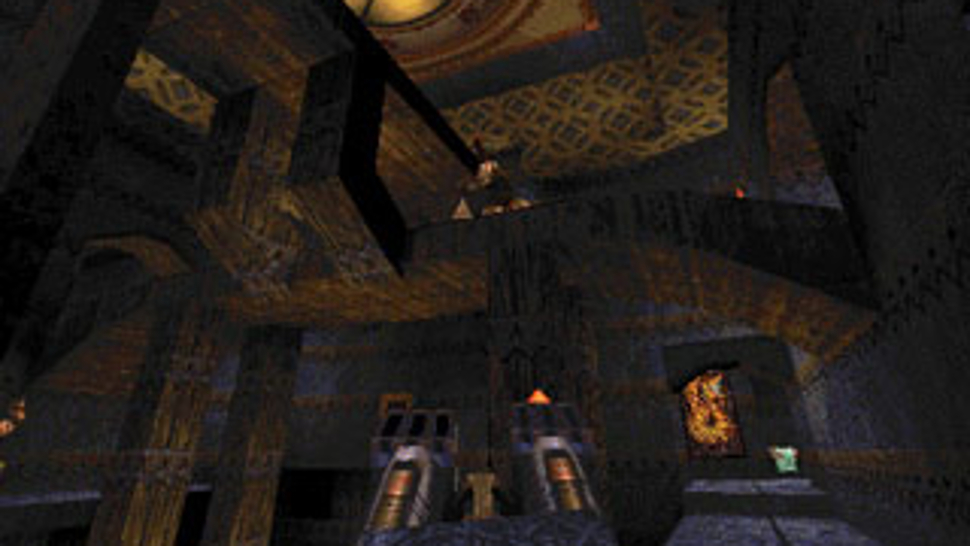
Image credit: id Software / Steam
Quake (1996)
It’s amusing to recall that we really didn’t like Quake much to begin with. We tried the single player mode initially, and found it was pretty much a joke. We scratched our heads at the most pathetic end-of-game boss ever. We wondered why all the graphics were dreary shades of brown or grey, as if to match the dull campaign.
Even the deathmatch mode left us rather cold on that first day, leaving us to wonder what all the hype had been about (and there’d been some seriously major hype, unsurprisingly).
But then the multiplayer clicked; we soon realized what a marvel it was, and never looked back. The dizzying pace of the deathmatch action, the beautifully crafted levels, or some of them – we’re looking at you DM2, DM3, and DM4 in particular – and the true 3D nature of the game which ushered in nuances like shooting rockets at the feet of opponents to catch them with splash damage (while jumping to get a better angle, and make yourself less of a target), or tricks like rocket-jumping. All this added up to a breath-taking multiplayer shooter experience.
Throw QuakeWorld into the mix, which smoothed over the netcode to allow folks to play on a dial-up modem (not everyone could afford an expensive ISDN line, or had access to JANET), and you ended up with clans and competitive leagues which we played in (the UKCL, as part of QPD to be precise).
We pretty much lost an entire year of our life to that, ahem.
Quake was also the start of competitive esports proper, with the UK squad being picked and the first international matches played, and of course Thresh famously winning that Ferrari.
We still remember our Quake days with a fond (quad-powered) glow, and for us, this shooter provided many of the most memorable matches and moments of our entire gaming life.
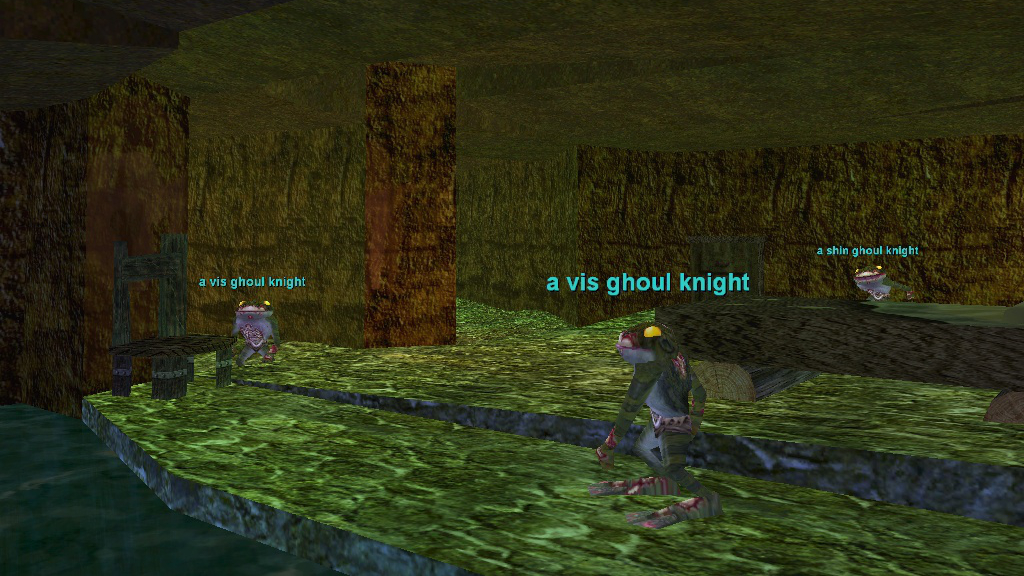
Image credit: Everquest.allakhazam.com
EverQuest (1999)
This was our first real foray into the world of the MMORPG. We wanted to like Ultima Online, and played it very briefly, but it never grabbed us. EverQuest, on the other hand, got hold of us by the scruff of the neck and didn’t let go.
The big draw here was that developer Verant presented us with what seemed like an impossibly sprawling world, full of mystery, and equally crammed with other players who made exploring this environment feel, well, as close to a ‘virtual world’ as we’d ever got.
In those early EverQuest days, we fought hard to get magical weapons for our ranger. We were felled in one savage hit by the hugely overpowered Ambassador DVinn in Crushbone. We marvelled at hulking sand giants in the Desert of Ro. We wondered how on earth those teleport spires that high-level players appeared out of worked, and where they got that beautiful shiny red metallic armor (rubicite) from.
And that was the crux of what made EverQuest amazing. It was our first MMORPG, and there was a true sense of mystery about how everything worked. Not to mention a true sense of peril and fear of death, which carried eye-watering experience penalties. Plus if you died in a tricky area and couldn’t retrieve your corpse in swift order, it rotted away and you lost all your equipment.
EverQuest was certainly a cruel world at times, made all the more brutal by the game’s terrible mob pathing, which meant that in, say, Mistmoore, just by breathing on the wrong bookshelf you could easily pull all the inhabitants of the castle down on your party. But that lurking sense of danger and potential imminent panic-stations somehow made our high-level achievements seem more spectacular.
World of Warcraft was a great game, not to mention far more refined in so many ways, but even so, it didn’t capture that same sense of mystery and excitement we experienced when exploring our very first MMORPG. Blizzard’s game became more of a levelling puzzle and loot-dispensing-machine (with too much of the stuff flying around, too readily) than an ‘adventure’, at least for us.
Yeah, we know: the sense of adventure was never going to last, but it was all-encompassing in its presence to begin with. And that was most definitely a beautiful thing, and a big piece of the puzzle missing with future MMORPGs, where we (mostly) knew what was happening behind the curtain, as it were.
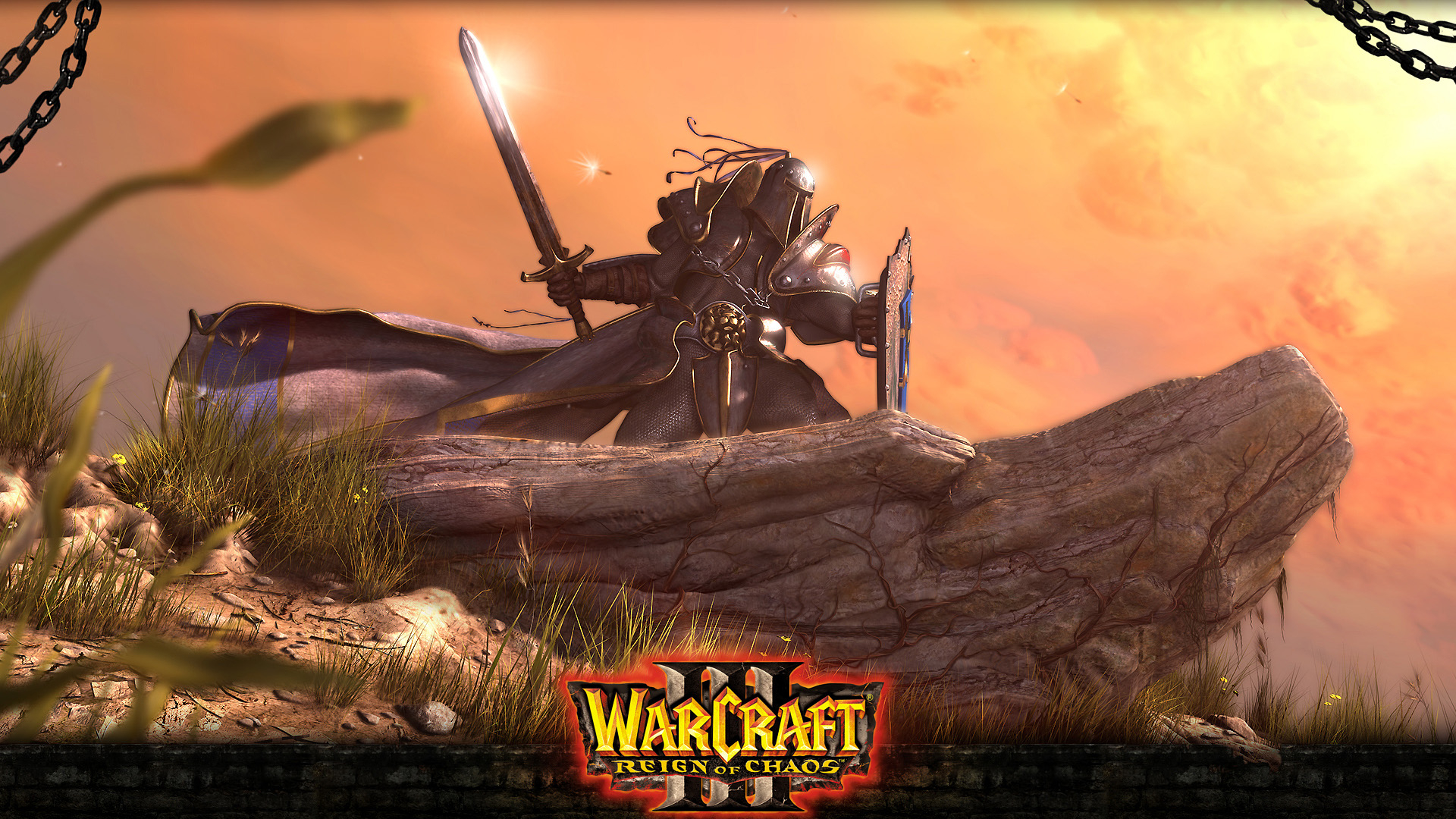
Image credit: Blizzard
Warcraft III: Reign of Chaos (2002)
Zug zug! Warcraft III was a landmark game for us because it was where we truly fell in love with the RTS genre, as it did several things differently, to great effect.
Not only were the visuals a massive step forward from Warcraft II – this was a gorgeous looker of an RTS at the time, which always helps – but the single player campaign had a suitably gripping story, with some smartly designed and well-scripted missions, that didn’t just make you think, but also at times, feel.
What really sold Warcraft to us, though, was the RPG element added in terms of levelling up your hero character to get new skills; that and the multiplayer. With the latter, the game was carefully balanced between factions, and there was a major thrill in being able to successfully direct your build-up to overcome your opponent.
What was really engaging here was the combination of having to build a base while simultaneously directing the hero’s party around killing ‘creeps’ to level up, flicking deftly between the two activities in the process of shaping up to take on the enemy. It proved an intensely addictive micromanagement juggling act for us, and when we got off to a flying start and subsequently outmanoeuvred an opponent, we found an immense sense of satisfaction. Far more than we ever encountered with earlier RTS titles, whether that was previous Warcraft outings or the likes of Command & Conquer.
Incidentally, a reboot entitled Warcraft III: Reforged is expected to arrive later in 2019, and it’s shaping up to be pretty slick. Set nostalgia drive to full-ahead maximum warp…
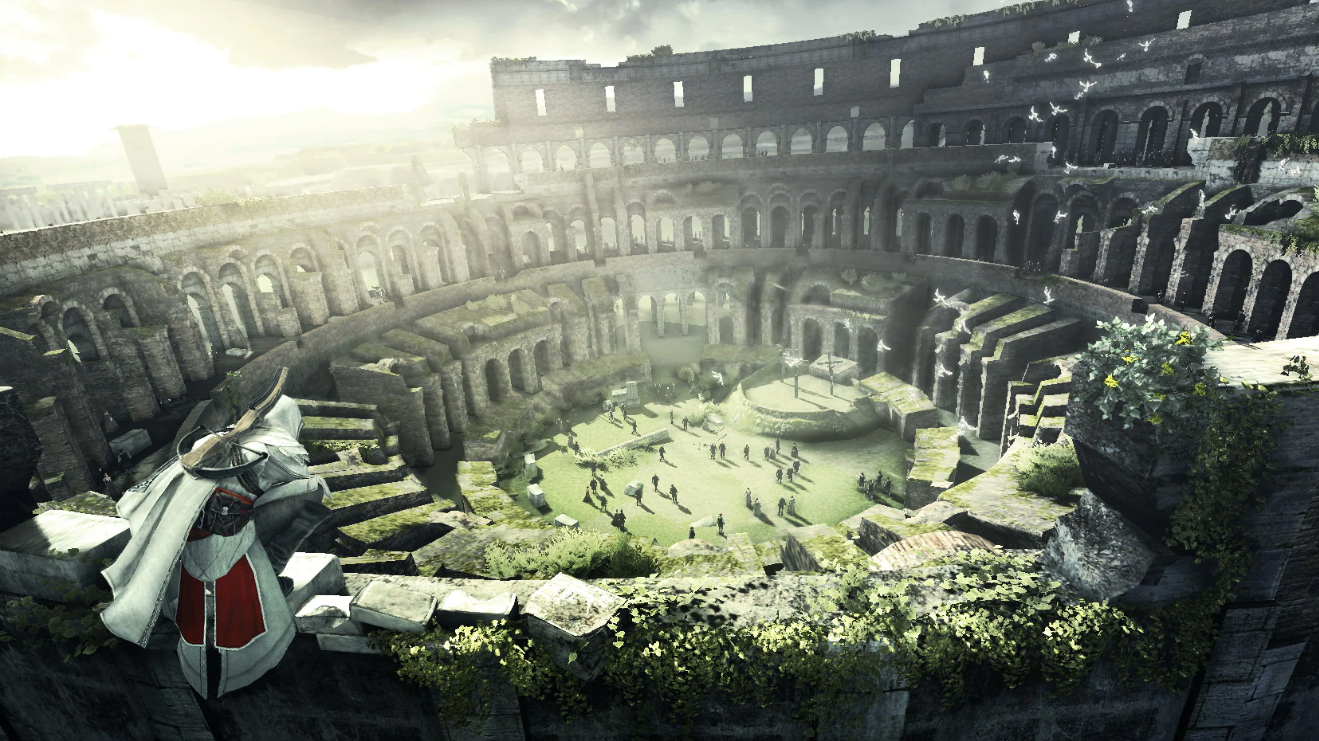
Image credit: Ubisoft
Assassin’s Creed: Brotherhood (2010)
It seems quite a few of our picks here revolve around multiplayer, and here’s another. Generally speaking, there was far from anything wrong with Assassin’s Creed’s single player, but the introduction of online play with Brotherhood was what sealed the deal for us.
Mainly because this was a very different type of deathmatch, one which wasn’t about attack, but rather revolved around stealth and subtlety. Although in actual fact, a game we played called The Ship had done this sort of multiplayer before, back in 2006. It was set on a cruise liner where passengers were given a target to murder, while also being someone else’s intended victim.
We enjoyed The Ship well enough, but Brotherhood took this concept to a whole new level, refining it with slick mechanics – from scaling walls to hiding in NPC crowds – and adding a neat scoring system where bonuses were racked up for cleverly thought out kills.
Hiding in a bunch of NPCs moving around the level, and acting as mechanically as them, so as not to arouse suspicion in your quarry until the last second – when you deftly poison them for massive bonus points – was in many ways so much more satisfying than any long-range headshot. We still remember that poison kill which scored us 3,200 points like it was yesterday…
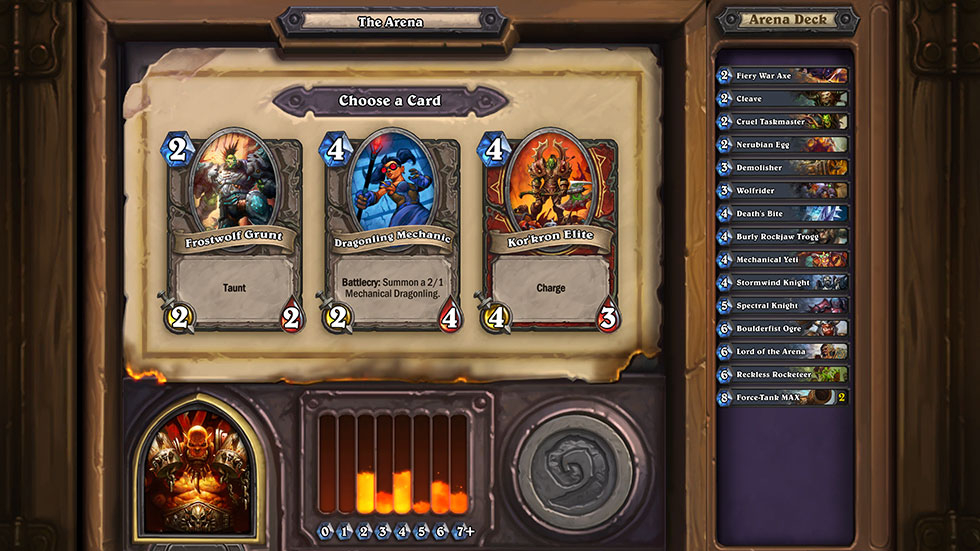
Image credit: Blizzard
Hearthstone (2014)
Hearthstone is still going strong as an online card game five years on. It’s free-to-play, but spending money to buy packs will obviously give you a much better selection of cards to build your decks with. Not in Arena, though: here, everyone’s on a level playing field, in that you must draft a deck from a series of randomized choices of three possible cards.
And it’s that draft we get excited about, and more specifically, the way the player is challenged to make selections to craft a deck with synergy on-the-fly. It’s like drafting a fantasy team, except with rocket-riding goblins and swordfish-wielding ninja murlocs (though sadly, Finja is no longer available in Arena) rather than athletes.
The core game mechanics are a work of art, too, and when you get an Arena draft right, subsequently racking up the wins – possibly sweeping a 12 win streak which is the end goal – it’s a magical feeling right up there with our most thrilling competitive gaming moments of all-time.
We know many Hearthstone fans dislike this play mode, and feel that luck is far too much of a factor – either in terms of deck drafting, or curveballs the matchmaking system throws you – but it’s funny how those top ranked Arena players seem to get constantly lucky…
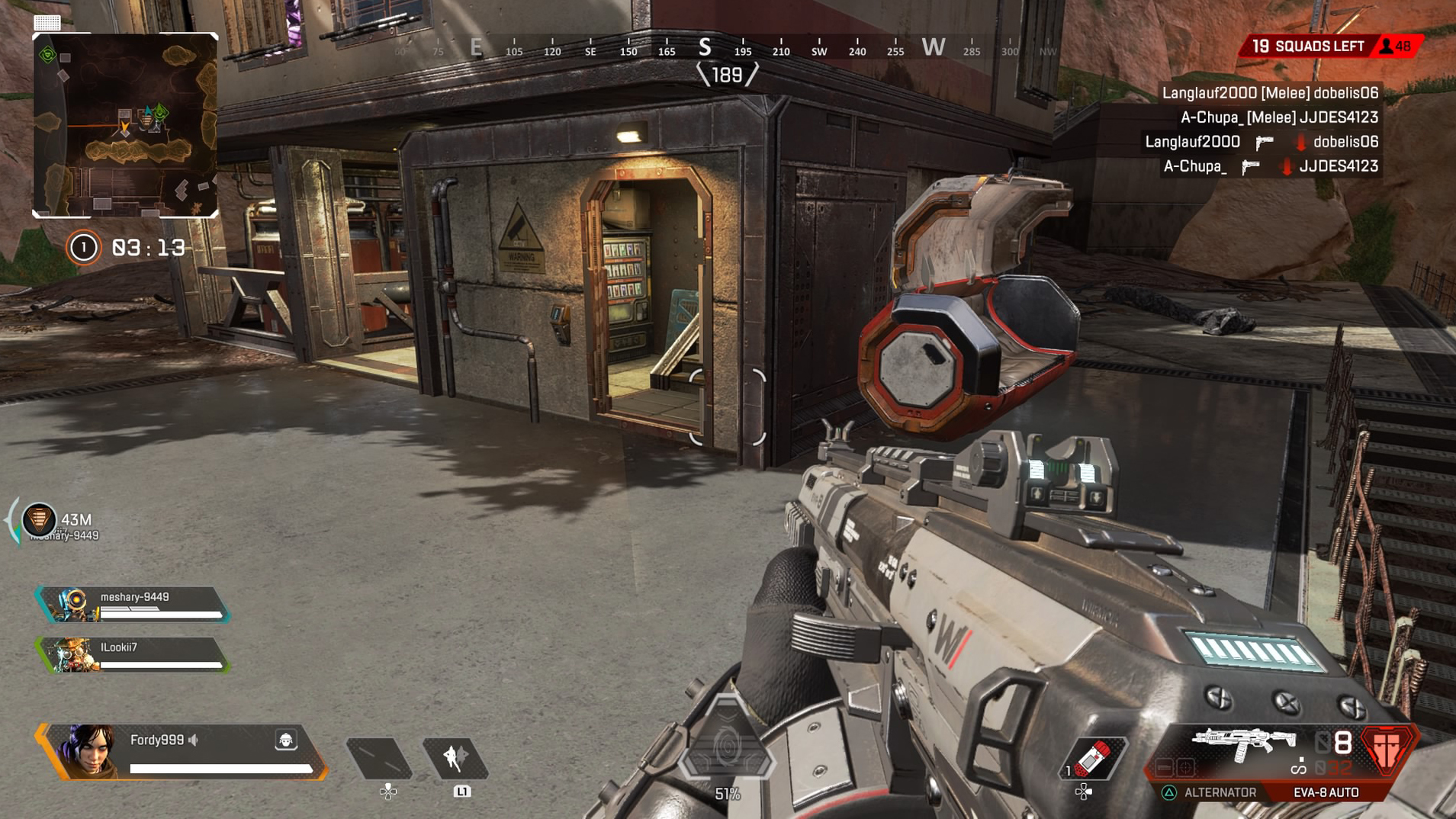
Image credit: EA
Apex Legends (2019)
Doubtless this will be a controversial pick, because it is so new, the game remains unproven, and has suffered a number of issues from bugs through to complaints about lacking content updates (although Season 3 has just introduced a new map) and ridiculously costly in-game items. And we agree with some of those grievances to an extent, but still, in terms of contemporary games, this is the title which has made the biggest impact on us.
So why has Apex been a ‘wow’ moment in PC gaming? Simply because when it launched, this was the game that finally got us to try – and fall in love with – the genre that is battle royale (BR), which has become a massive phenomenon of late.
Despite all the hype surrounding BR, we never fancied splashing our cash for PUBG. Having watched it on Twitch, the game never really grabbed us, or felt quite engaging or polished enough. Fortnite was free, a major draw, and faster paced, but went the other way, being too cartoony and silly. We simply don’t want to play a shooter where you can throw up walls in front of yourself.
Apex Legends, which is also free, got the porridge at just the right temperature for us in terms of being more fast-paced and accessible, while still playing like a ‘genuine’ shooter, as it were. Not only that, but we love the hero choices, team synergies and overall focus on teamplay, with the genius introduction of a (much-copied) ping system for dead simple and convenient cooperation between players, even in pickup groups.
The fluid movement system, with a focus on mobility and parkour elements, along with the shooter mechanics which we think are pretty much spot-on – and contain hidden depths and nuances – all make Apex Legends a definite highpoint in PC gaming for us thus far. Will that last? The jury’s still out, but nonetheless, this game got the mechanics so right, and fully opened our eyes to the ‘just-one-more-go’ world of BR, that it earns a wow salute.
from TechRadar - All the latest technology news https://ift.tt/34ZV3hv